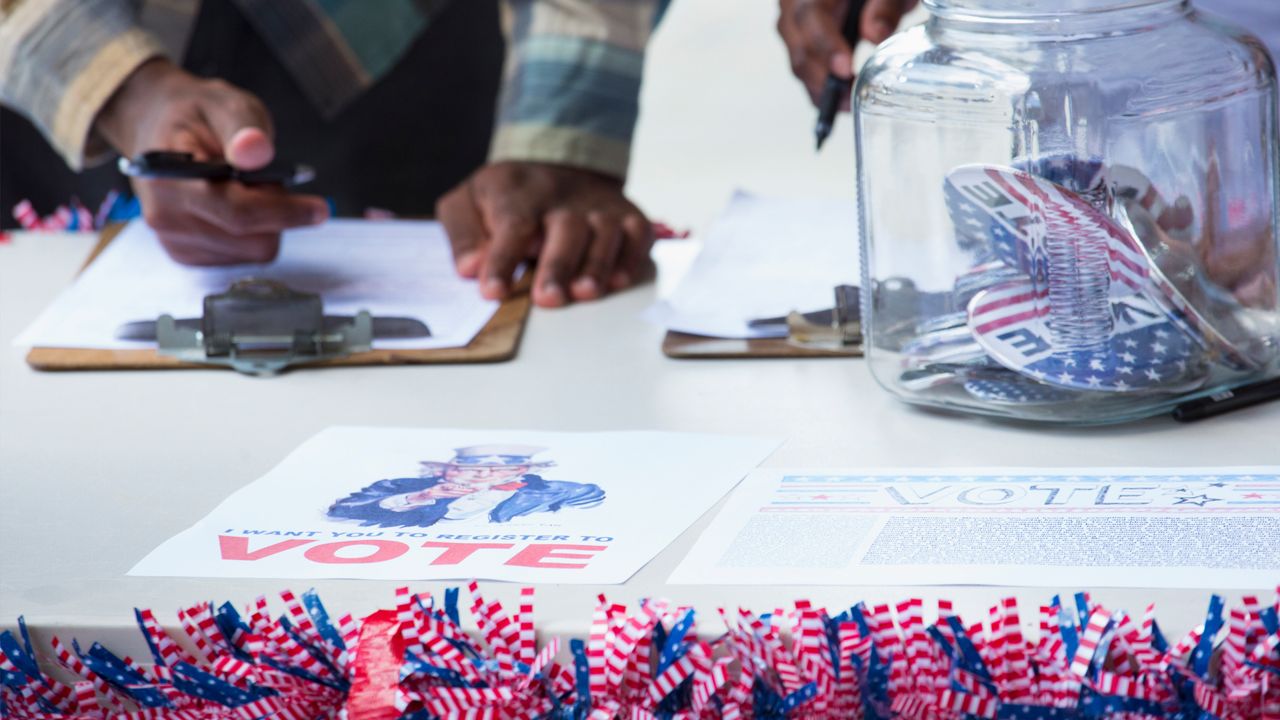FRANKFORT, Ky. — Last December, on his third day in office, Governor Andy Beshear signed an executive order restoring voting rights for 170,000 Kentuckians previously convicted of nonviolent felonies.
What You Need To Know
- 170,000 Kentuckians with felonies can now vote in Kentucky
- Dozens of advocacy groups across the state are working to spread to the word
- Some advocates are frustrated with the Beshear administrations's efforts to inform ex-felons of their restored rights
- The deadline to register to vote is October 5
Beshear’s executive order was celebrated as a breakthrough in a state that, at the time, was one of only two with a strict lifetime ban on ex-felons voting.
But in the nine months since, advocates have grown frustrated with what they call an insufficient attempt to find people affected by the executive order and alert them to their newfound ability to participate in the electoral process. The Department of Corrections does have a website — CivilRightsRestoration.ky.gov — that will tell most people if their rights have been restored. The Justice and Public Safety Cabinet has also worked to publicize the site on social media and through PSAs. On Wednesday, Beshear tweeted the link to his 115,000 followers.
Still, some say there hasn’t been enough outreach, citing the lack of direct phone calls or mail to the re-enfranchised along with impartial and inaccurate contact lists of ex-felons.
“Governor Beshear was wonderful with his executive order, but they didn’t let anybody know,” said Debbie Graner, a member of Kentuckians for the Commonwealth who was in the Capitol rotunda when Beshear signed the order. Now Graner, who got back her right to vote that day, is working to spread the word about the restoration of voting rights. “If you don’t watch the news, you’re not going to have a clue,” she said.
Many groups in Kentucky are trying to change that. The Voting Rights Coalition is made up of roughly 40 organizations, including religious groups, labor unions, and grassroots groups, each working to register ex-felons to vote.
One coalition member, the League of Women Voters of Kentucky, says its members have distributed fliers to libraries, churches, civic organizations, and shelters, made phone calls, sent texts, and written nearly 50 op-eds publicizing the executive order and Department of Corrections website. They’ve also communicated with public defenders and county clerks, who administer elections.
“When somebody is convicted of a felony and they complete their sentence we should trip over ourselves to welcome them back into the community and restore their voting rights,” said Ed Monahan, former Kentucky Public Advocate and the chair of the League of Women Voters Restoration of Voting Rights Outreach Committee. “When people come out of being incarcerated, we don’t make them wait to pay their taxes. When they complete their sentence, we shouldn't make them have hurdles to get the right to vote back.”
Monahan refused to criticize the Beshear administration’s efforts to inform ex-felons of their restored rights. “My focus is on celebrating the fact that the governor quickly entered this executive order,” he said.
But Jennifer Jackson of the League of Women Voters of Lexington conceded that more could have been done. “People don’t know whether they had their voting rights restored. The Department of Corrections didn’t send out a letter or anything like that.” A spokesperson for the Governor’s office did not return a request for comment.
Other groups working to register the re-enfranchised include the ACLU of Kentucky, the Kentucky Conference of the NAACP, and the Kentucky Equal Justice Center, which expressed its frustration with state-level efforts in a tweet Wednesday.
✅ 170,000 Kentuckians' voting rights restored!
— Kentucky Equal Justice Center (@KYEqualJustice) September 16, 2020
❌ ... Little state attempt to let those people know their voting rights were restored
Tonight at 6 pm from @kftc — get trained to call voters to talk about the restoration of voting rights! Register here: https://t.co/Qud0ItjM2s
Tayna Fogle has felt that same frustration. A former University of Kentucky basketball player who spent several years in prison, Fogle is now working with the Kentucky Democracy Project, an effort to boost voter registration in the state, to “locate, educate, and persuade folks with felonies in their past that their vote is really going to count.”
Fogle said the “roll out from the executive order” could have been better. She cited inaccurate lists of ex-felons who advocates have been trying to contact. “I do believe Kentucky could have done a better job,” she said. “But that’s not going to stop us.”
On Tuesday, Fogle and eight volunteers canvassed streets in North Lexington, leaving behind literature with the Department of Corrections website. Her team regularly mans tables in parts of the low-income parts of the city, makes phone calls and texts, and reaches out to church congregations. She said homeless shelters, recovery centers, and courthouses are good places to find people like her. And they deserve to be found.
“My voice counts and my vote counts,” she said. “We’re not mistakes. We made mistakes.”
For more information about Kentucky's general election, please visit our 2020 Election section.



